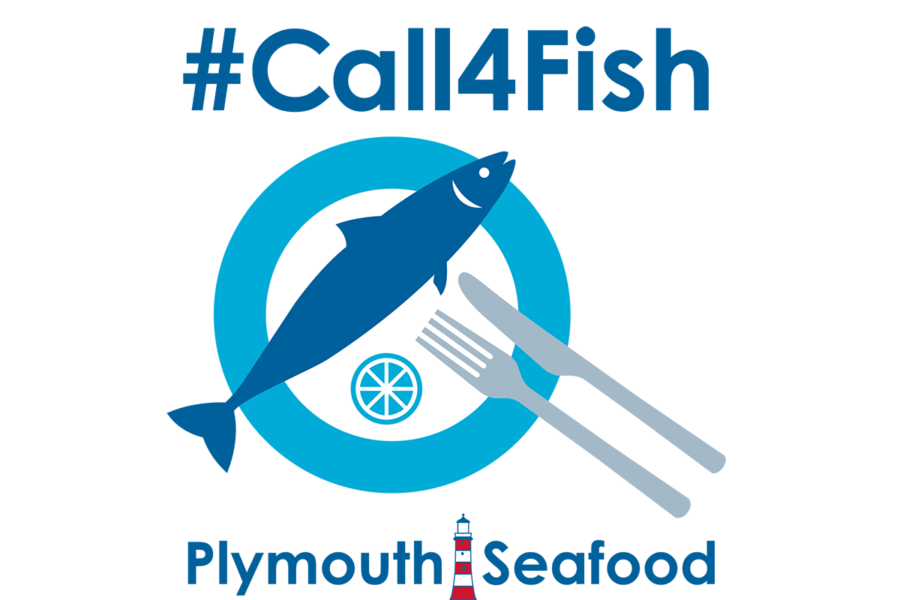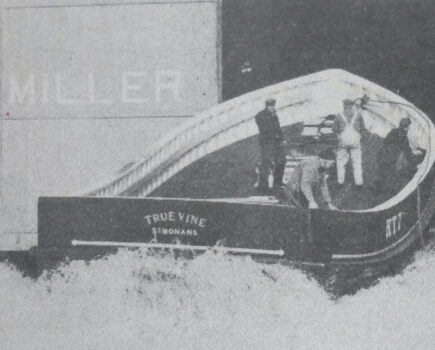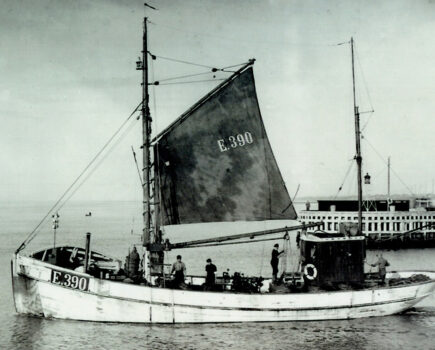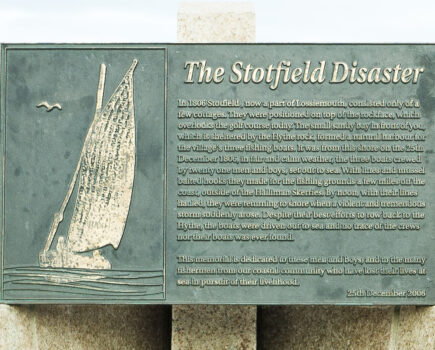Fishing News talks to the Call4Fish team, whose Covid-driven initiative to connect the local industry with local consumers has now transformed prospects for fishermen nationwide

Rodney Anderson, leader of the Call4Fish team.
By the third week of March, with vital European markets and outlets shutting, and fears over the lockdown progressing to include hotels and restaurants in the UK, David and Alison Pessell of Plymouth Trawler Agents (PTA) knew it was time to act.
“Like everyone else, I am sure, we didn’t know what the coming weeks and months would bring, but we were sure that none of it was likely to be good for the industry,” recollects David Pessell, CEO of PTA.
On 20 March, PTA appointed a small team headed by former DEFRA director of fisheries and marine Rodney Anderson, who set to work. Over that weekend, Call4Fish was born. Within 72 hours, the website and social media channels were up and running, and Plymouth-based merchants and fish shops repurposed themselves to start selling to the public with home deliveries.
With the listings up on the website, and auction prices collapsing around the coast, the Call4Fish team started working with local media to get the word out that the Plymouth fishing fleet and its merchants were open for business, with a simple message of #StayHome and #Call4Fish.
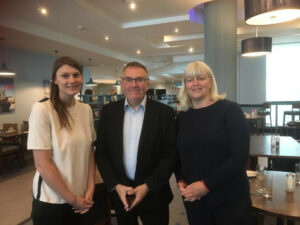
Call4Fish supporters, left to right: Alison Freeman of Fishmongers’ Hall, Tudor Evans OBE, leader of Plymouth City Council, and Deborah Layde of Seafarers UK.
“We wanted to keep it simple,” Rodney Anderson said. “The fishermen needed support to sell their catches, and the public needed to eat without having to go out. We were staggered by the response. In that first week, Plymouth fish merchants stepped up to the plate. They worked crazy hours to keep up with the demand for boxes of fish delivered to people’s homes. Things were tough, but they would have been much worse if they had simply closed up and furloughed. I am glad that isn’t the story being written today.
“We needed support for the project, and without the rapid response from Fishmongers’ Hall, Seafarers UK and Plymouth City Council, we could not have achieved so much in such a short period of time. They are to be praised for understanding that this was truly an unprecedented crisis, which called for urgent and decisive action.”
But by the end of that first week, calls started coming from across the country. Some were from fish shops that had lost some or all of their supply, and even access to premises in some cases, all asking for help. At the same time, Call4Fish was hearing from fishermen who were not located near auctions and who had lost their buyers. Although the details differed, the stories had a common thread of disconnection between the UK catching sector and outlets. The Call4Fish ethos was simple – to support existing chains and help to protect not just the jobs at sea, but those on shore too.
“It was a watershed moment for Call4Fish and many in the industry,” said Rodney Anderson. “That day, during our regular morning team call, it became apparent from what we had individually picked up from people in the industry who had contacted us that there were widespread problems – and there was no central lifeline. It was difficult to know the full scope, but we concluded that some of the problems were solvable, and that extending Call4Fish outside of Plymouth might help. Ultimately, this was a call for PTA to make.”
“PTA has always operated on a ‘fishermen first’ principle,” said David Pessell. “We could not stand by if others needed help elsewhere and we were in a position to assist. There was no question but that Call4Fish should reach out to help all fishermen and outlets wherever it could, regardless of where the fish were landed. It was an easy decision for us to take.”
By the end of the second week, listings started appearing from Berwickshire to Jersey, and they continue to grow today. Call4Fish has been able to help connect fishermen and outlets that hitherto had not met, despite in some cases being just 30 minutes away from each other. In other instances, Call4Fish offered practical advice on packaging and courier services for those who had not ever couriered fish to the public. Logistics were, and continue to be, an issue, but Call4Fish is well placed to help link up shops on the same routes struggling for supply, allowing them to join forces and solve their problems together.
Some 90 days after its launch, Call4Fish is now looking to consolidate the gains made by the industry and recognise that there has been a step change in eating habits prompted by the crisis. While Call4Fish outlets will never sell everything the UK fleet catches, the public support has been amazing, and the impetus must not be lost.
“For years, I have been hearing that we are a nation of cod and chip eaters, and about the public’s lack of imagination when it comes to eating fish,” said Rodney Anderson. “I have struggled with this piece of received wisdom, as it is completely at odds with the British public’s willingness to try new foods, given the opportunity. Well, perhaps for the first time for several generations, there has been a chance to test the theory. We have seen thousands of people across the country trying great-quality fish, and the response is overwhelmingly positive.
“There has been an appetite for lesser-known species, from weever fish to gurnard and pouts to spider crab, alongside the staple sales of the iconic species like lobsters, Dovers, hake and scallops. This has demonstrated that when presented with ready-to-cook fish, there is a home nation of fish eaters who have discovered that they do not have to fly to Spain or Italy to enjoy quality fish; they can do it at home too.”
A recent survey completed by Call4Fish customers is revealing. Only 7% said they preferred to buy whole fish over fillets. A whopping 77% had ordered up to five times already, with 12% of customers having ordered more than six times. The survey showed that while some had ordered from multiple outlets, the majority of respondents ordered regularly from one or two outlets. Given the opportunity at the end of the survey to comment on what Call4Fish did well, or could do better, many said, unprompted, that they wanted to see Call4Fish (but more importantly, merchants and fish shops) continue to offer deliveries to their doors via van or courier after the crisis.
Like many small enterprises in the industry, Call4Fish was not successful in receiving funding from schemes run by the government to provide support during the crisis. There are lots of small businesses in the fishing industry that have led the way in adapting and responding to the demands of Covid-19. There has been a breakthrough driven by necessity, which Call4Fish believes that the government should capitalise on. It should look at what more can be done to ensure that fish, usually destined for export, can be enjoyed here at home, with fewer food miles and a smaller carbon footprint.
Rodney Anderson said: “Who knows what the coming weeks and months hold for the fishing and seafood industries here in the UK. There is still lots of uncertainty around Covid-19, and with leaving the EU. It would be a hugely missed opportunity if, for want of the right kind of help, small businesses across the country were left to carry on doing the hard yards without support.
“For decades, celebrity chefs going back to Floyd on Fish, through Rick Stein, Mark Hix, Mitch Tonks and many others, have been telling the public to enjoy more UK fish, showing them how to cook it. It turns out that a silver lining to the devastation of Covid-19 is that the public have seized the chance, and they are loving it. We are not just a nation of cod and chip eaters – it’s official.”
Case study: Chantelle Williams, Fresh From The Boat
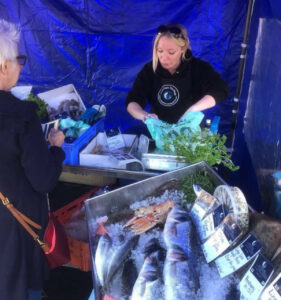
Chantelle Williams of Fresh From The Boat.
How did Covid-19 affect your existing fish box business?
At first we were very nervous. We’d only just reopened, after being closed for five months because I’d had major brain surgery.
Once lockdown hit, our community rallied round us, and our existing business model was even more welcome than ever before. The first three weeks, our phone didn’t stop ringing, emails were crazy, our outdoor fish stall was busier than ever, our local deliveries increased by 400%, and the whole community chipped in to help to get fresh local fish to the most vulnerable.
We supported as many local fishermen as possible, paying them good rates for their fish to keep them supported during the Covid crisis. We also supported as many families as we could, with either affordable fish packages or, for the ones most in need, free food boxes.
We are now in a wonderful position, opening a new shop, with regular opening hours, and can do more to get local fish to local people.
How did Call4Fish help?
Call4Fish put us on their list of suppliers. After it had been plugged on Countryfile, our phone rang off the hook, mainly with people who required an overnight courier service, which we weren’t set up for. This has now been established, giving a wider audience for fish caught and delivered to the door within a 24-hour timescale!
Can you continue to grow and expand? What help and support do you need?
Yes, 100%! We have proved this by taking on quayside facilities, for us and the community to be able to use and enjoy, for many years to come!
We need funding to be given to the right people, as there seems to be a huge brick wall put in front of smaller businesses and inshore fishermen when it comes to grants, despite the fact that 80% of our UK fleet is made up of smaller vessels. There were many funding or grant schemes available via the government to help with the impact of Covid-19; sadly, we received none of these. We are now going into debt setting up the new premises, working 100-hour weeks to support local families, the local community and the vulnerable, while putting ourselves at risk.
We did receive a grant from the Fishmongers’ Hall to get a small amount of essential equipment – this was welcome.
Our government needs to fully back the great British fishing fleet, from catching to selling, and we know the public will be there to buy it! And I’m not just talking about your usual cod and salmon fillets – they are quite happy to eat any species, providing it’s fresh, local and fully traceable.
Case study: Gerry Skews, Waveney Valley Smokehouse
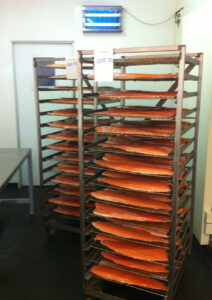
Waveney Smokehouse produce…
How did Covid-19 affect your existing fish box business?
Our business was significantly affected by the emergence of the Covid virus and the ensuing pandemic. Thirty percent of our business disappeared overnight with the closure of the foodservice sector – but then the phones started to ring, and they did not stop. Our contract and retail customers doubled their standing orders, and when Call4Fish was established and received publicity, private customers started calling from across the country.
Far from looking at contract staff reduction, we needed to add staff and resources. The government grant was spent on increasing stock and setting up a third packing line to cope with the increase in demand. It wasn’t just smoked fish that was in demand, either – our fresh fish sales climbed steadily, as more and more people drifted away from the plastic-covered fish in the supermarkets. In true competitive fashion, the initial cost of farmed salmon dropped like a stone, and then rocketed to an all-time yearly high as demand grew.
The question that remains is whether customers will shift permanently to buying fish directly and online. There are good reasons to do it, but habits are hard to break, especially when supermarkets have huge budgets to help ‘motivate’ customers.
How did Call4Fish help?
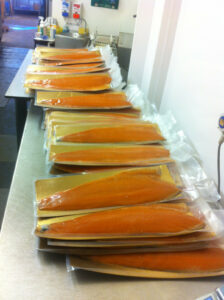
… ready for dispatch.
Call4Fish created a market that did not exist. It popularised the concept of shortening the supply chain – it put consumers in contact with local fish suppliers, and local fish suppliers in direct contact with boats. This was borne of need and circumstance, and small businesses rose to the challenge. If anything, it helped to demonstrate that our industry could be creative, dynamic and responsive. It was the kernel of a great idea, and resonated with customers and suppliers alike.
Can you continue to grow and expand? What help and support do you need?
A great question. The government allocated a £1m fund to bring a state of permanence to the innovations that were being led by the myriad entrepreneurs in the fishing industry. This seemed like a breath of fresh air to move us out of the doldrums, and great excitement breezed through the industry. But the money was immediately allocated to large companies, mostly based in the South West of the country, slashing any hopes of long-lasting innovation. ‘Situation normal’ was the common cry. Innovation was stepped on, with a government department with no business or real-world experience allocating funds to companies that fitted a government grant-friendly profile. How does this give us hope or inspiration for the future?
Will the business survive? Of course it will – it just won’t be internationally competitive, because innovation is not recognised as a viable strategy that should be supported by a visionary government. Some things never change – risk is always avoided, for fear of political repercussions.
Case study: Nigel Birt, Lyme Bay Fish Shack/KT-SAM E 10
How did Covid-19 affect your existing fish box business?
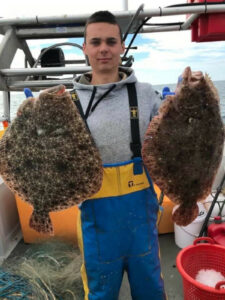
Sam Birt of Lyme Bay Fish Shack and KT-SAM E 10.
We didn’t really do fish boxes before Covid-19 – but the immediate effects were that we saw much more traffic, with people coming into the shops. We had to immediately put measures in place to deal with social distancing while shopping.
We started educating customers about the inshore fishermen – that the fish is not coming from supertrawlers, but from local boats that are hoping to cover the cost of their daily expenses while maintaining good prices on fish. We explained the methods of catching the fish, to educate and to highlight the species on offer. We have noticed that customers are now asking what is on offer, rather than automatically requesting Premier League fish – that is progress!
How did Call4Fish help?
Call4Fish raised awareness both locally and nationally, while also highlighting us as small-scale fishmongers who are able to supply better fish than the public may have come across shopping at supermarkets. It alerted the wider community to the fact that we were open and able to supply fish, and what they had to do to get it.
Delivering fish boxes was a result of Covid-19. We started going out and delivering ourselves to local areas, and to older people self-isolating, and we even put notices in local papers in one particular town to rally friends around and create a buying hub. We now make a bulk delivery to that area every third week, and are introducing more species than ever before.
Can you continue to grow and expand? What help and support do you need?
Our future is bright – we are already at capacity now, so we could do so much more with a little bit of help. Call4Fish has to keep going, to keep supporting fishermen to fish, and to maintain prices and keep the customers buying this way.
On a personal level, support is needed to build a website with an EPOS page to facilitate growing customer demand, and we could immediately up our production and sell more fish if we added more cold room facilities.
Case study: Graham Flannigan, Berwick Shellfish Company
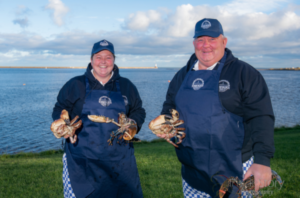
The team at Berwick Shellfish Company.
How did Covid-19 affect your existing fish box business?
Covid-19 came without warning and had a drastic effect on our fish box delivery service. We have been supplying restaurants, hotels and families across the UK using our overnight delivery service for over 10 years, with a steady reliable repeat customer base. Two days before Mother’s Day, we witnessed our customers with hotels, restaurants and bistros having to close under lockdown rules and remain shut for weeks on end. This stopped much of our usual business, as the customer chain both abroad and at home in the UK were finished for the time being, having severe consequences on the food supply chain.
We normally have a reliable courier network that offers a next-day delivery service. We witnessed call centres closing down, and customer service numbers being diverted to staff working from home and relying on emails as the only form of communication, creating lengthy waiting times for clients seeking to trace the whereabouts of their seafood package.
How did Call4Fish help?
When Call4Fish became involved, we noted that customer levels increased dramatically. Not only were we serving Northumberland and the Scottish Borders, but our reach grew. We had been selling nationally for almost 10 years via the internet, but with Call4Fish creating a link to our site, our client list quadrupled in four weeks, increasing our online sales and helping our local fishermen to keep working, hauling their lobster and crab pots daily, knowing their catch was moving to domestic customers.
Can you continue to grow and expand? What help and support do you need?
Many businesses have had considerable financial support from government and also grant schemes. To date, we haven’t received any form of financial help. We feel that through hard work and effort we have managed to keep our business alive, albeit through a very strange and stressful period, not witnessed before in our lifetimes.
We welcome the ongoing support of Call4Fish as a strong base for expansion in what we truly feel will be a life-changing period, in which shopping from home will continue as much as possible. We all like nothing better than to stroll through market stalls and purchase fresh fruit and meats, cheeses and seafood that you can actually see and smell – but families and customers who still have to stay home also deserve to savour the great fish and shellfish we catch right here, around our wonderful island nation.
A fisherman’s perspective: David Stevens, Crystal Sea SS 118
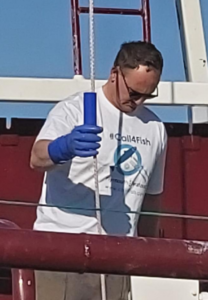
Crystal Sea skipper David Stevens.
“When I look back at the beginning of the Covid-19 pandemic, we, like most industries, faced a huge challenge to just survive. I very much doubt that we would have been able to go to sea if it were not for the Call4Fish initiative. Our counterparts in France and Spain were all tied up and their markets were totally closed – the whole sector ground to a halt.
The key part of the Call4Fish app/website was to link the catching and processing sector to the general public. This makes it unique, and is what made all the difference to our industry as a whole.
The public support for our industry has been utterly amazing. For those in management or in our industry, particularly those involved in the marketing of fish, who still believe that we are just a nation of cod or haddock fish and chip eaters, all I can say is: look at what Call4Fish and other similar ideas have achieved. It was a steep learning curve, but one which we had no choice but to take.
The fact that this initiative is still delivering beyond the crisis shows what traction it has, and the relationship it has with the public. With the future of the UK outside of the EU, we would be foolish not to continue to build the momentum in this way. It served us well when we most desperately needed it, and it will in future – but it needs backing.”
Plymouth council leader offers hands-on support

Tudor Evans, Plymouth City Council leader and fish chef.
It will be no surprise to many that councillor Tudor Evans OBE, leader of Plymouth City Council, who pioneered the safety revolution, giving PFDs with PLBs to fishermen in Plymouth, has once again led the way in support for his and the wider fishing communities.
When he is done with his day job, steering a city of around 280,000 people through the Covid crisis, he has been ordering seafood from local merchants, and cooking and filming two to three times a week. From simple quick-to-cook recipes to more elaborate culinary delights, his ‘Tuck in with Tudor’ videos have produced regular content for Call4Fish’s social media channels and beyond.
Tudor Evans said: “Fishermen are some of the bravest folk I know. They literally risk their lives every day to bring us amazing fish. If I can help drive a few sales and encourage the wider public to try less common species that we have here in the UK, by putting on a pinny and getting a few minor burns, it’s the least I can do.
“Call4Fish has been fantastic for our city during lockdown. Those shielding, or wanting to stay home and have fish delivered, now can – the local fish merchants have really transformed themselves and dug deep to help keep the city fed, and safe, and we are all grateful for their efforts.
“You won’t read many headlines on this, but I also know that the industry has been helping local charities who help those less fortunate across the city – but we know what they have been doing, and it is things like this that make Plymouth such a special community to be part of.
“I must admit to having missed my grandchildren terribly during lockdown – like many others across the country, I’m sure. Getting fish boxes sent to them, getting the next generation involved in fish, and seeing them cooking ‘sea monsters’ (langoustines) and pin-boning mackerel fillets has added some high points to an otherwise difficult time for all of us.
“It is so important that we start teaching our young people about fish, how to catch it and cook it, and the health benefits. Somewhere we became reliant on supermarket shelves for our fish – a generation seems to have lost that connection. Call4Fish and its listings have disrupted that, and long may it continue. Local fish, fewer food miles – what’s not to love?”

